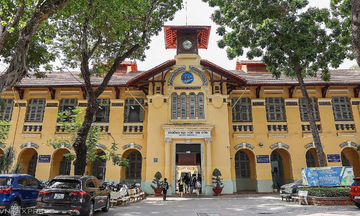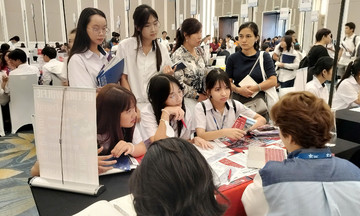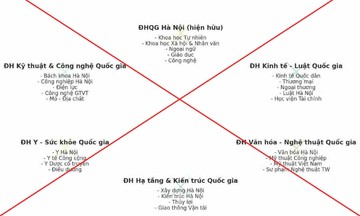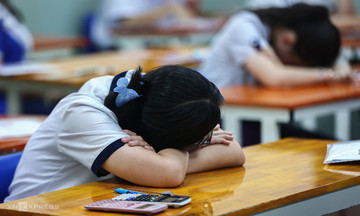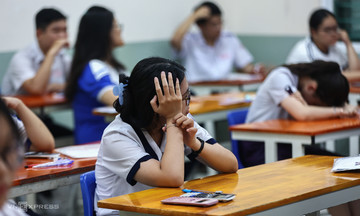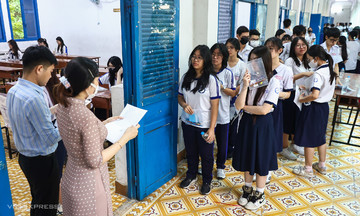Mr. Hoang Duc Minh, Director of the Department of Student Affairs, spoke to VnExpress on 22/9 regarding Circular 19 concerning student commendation and discipline. Accordingly, from 31/10, the highest form of disciplinary action for students will be writing a self-criticism essay, replacing temporary suspension.
As a draft, this regulation caused concern among many who worried it would be difficult to "deter" students. The issue continued to draw attention following the incident last week at Dai Kim Secondary School, Hanoi, where a 7th-grade student pulled the hair and held down their homeroom teacher. The Ministry of Education and Training considered the incident serious and detrimental to the educational environment.
Mr. Minh explained that Circular 19 represents a shift from "punishment" to "education" and "support" for students, helping them correct their mistakes. This approach aligns with the goal of comprehensive development of qualities and capabilities outlined in the Education Law, prioritizing student progress and viewing disciplinary measures as part of the educational process, not as punishment.
Meanwhile, suspension and expulsion are administrative decisions that potentially push students towards crime when they lack education and care from school and family.
"Suspension and expulsion are unsuitable disciplinary measures for students," he said.
 |
Mr. Hoang Duc Minh, Director of the Department of Student Affairs, Ministry of Education and Training. *Photo: MOET* |
Mr. Minh also acknowledged that education isn't solely the responsibility of the education sector but requires close coordination and responsibility from families, schools, and society. Addressing concerns about the leniency of disciplinary measures, he explained that in addition to the Ministry's regulations, the educational environment is also bound by current laws.
"Therefore, for each violation, depending on its nature, extent, and consequences, each individual will be subject to legal measures according to regulations such as criminal law, juvenile justice law, and other applicable laws," he said.
The Ministry of Education and Training representative urged schools to proactively study Circular 19 and coordinate with relevant agencies to clarify incidents beyond their jurisdiction, thereby handling violations appropriately.
Besides disciplinary actions, schools should support students in correcting misbehavior through counseling, encouragement, monitoring, psychological support, and requiring participation in school counseling and social work activities.
Thanh Hang






